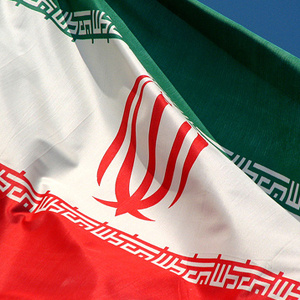Return Our Respect
Regaining Iran’s international prestige should be the key priority of the next Iranian president. By Javid Ghorban Oghli.

 The first and foremost goal of the next Iranian president is to return our country to its deserved status in the regional and international arena. Our standing has been damaged throughout the past four years.
The first and foremost goal of the next Iranian president is to return our country to its deserved status in the regional and international arena. Our standing has been damaged throughout the past four years.To achieve this goal, we should represent the world that we do not want a war. We only want to have a rational interaction based on our mutual interests. However, our national interests are determined not by the president. It is the collective intelligence based on key documents which outlines our national interests. The president merely bears the responsibility of defending our interests. Flexing our muscles for the world is definitely not a way to fulfill our interests. The issue is more complex.
Retention of territorial integrity is a key objective of our foreign diplomacy. To attain this objective, we must avoid any measure which jeopardizes the security of our soil. As the second most-powerful political figure of the country, the president should not either verbally or actually perform acts which cast doubt on our territorial integrity and tempt other countries to press Iran over their claims.
A clear example is the way Mr. Hashemi Rafsanjani reacted to UAE when they were running a publicity on the Iranian triple island of the Persian Gulf, i.e. Abu Musa and the Tunbs. While our country was not yet stable after an eight-year war with Iraq, Hashemi said that whoever wants to capture these islands has to pass through a sea of blood. The language showed how determined he is when it comes to our territorial integrity.
I remember that during Khatami’s presidency, the late Sheikh Zayed of UAE frequently invited Khatami to visit the sheikhdom. However, Khatami declined to travel to United Arab Emirates since it would imply that the visit is undertook to negotiate over the islands. Meanwhile, we maintained our relationship with UAE at the level ministers and we had strong economic ties. Nevertheless, as the highest executive figure of the country, Khatami avoided any measures which could doubt our standing firm on Iran’s territorial integrity. Less was seen in the past four years.
Ahmadinejad’s short visit to UAE became food for controversy and trouble. In this visit, he said that if Egypt was ready, he would appoint an ambassador to Cairo till the sunset –clearly an unrefined remark. And his plan hadn’t taken off from the UAE soil when the sheikhdom’s FM said that the triple islands are a critical issue for his country and they will pursue their claims.
To make a visit to a country, some requirements should be fulfilled. A minimum of agreements with a country should exist before the visit. In foreign diplomacy, a president’s visit to another country implies the highest level of mutual understanding. Presidential visits to other countries are usually made when there is an insolvable problem, or they are made as state visits. That means the two countries have reached a high level of diplomatic relations and now they want to expand it in all directions. The problem is not with Ahmadinejad’s visit to United Arab Emirates pre se. The problem is that we did not share the basic commonalities for making this visit.
Our international prestige is another issue. The Iranian president should try to improve our reputation. And this should happen in reality, not only in our sweet dreams. Today Saudi Arabia has turned into Iran’s regional rival and is trying to gain support in confrontation with Iran. How have we wounded our relations? Hashemi Rafsanjani’s last visit to Saudi Arabia was made when he was not a president. But we saw that exceptionally, he was allowed to visit to Baghee’ Cemetery [burial ground of Prophet Mohammad and some Shiite Imams –banned to be visited by Saudi government]. Even the prayer leader who had insulted Shiites was dismissed. The gesture shows that Saudis paid respect to Iranians. It meant "we do not tolerate an offensive remark against Iran in our country".
But today we are not at that place. We are insulted and yet we smile, thinking that it is an honor. Khatami and Ayatollah Khamenei (during his presidency) when respected when visiting New York. The American police reacted toughly against MKO members demonstrating against Khatami near the United Nations building. But today, when the Iranian president is making a speech, European diplomats walk out of the conference hall. What does that show?
Today, diplomatic concepts are inverted. Throwing a show at George Bush is shown hundreds of time from the Iranian TV and introduced as a humiliating insult and a protest against the American president. But when things are thrown at our president in Geneva we call it a sign of our power. How can two similar events be interpreted so differently?
Once again, I believe that Iranians’ international dignity should be the key priority of the next Iranian president. Mir Hosein Musavi seems as the best candidate to achieve this objective.

